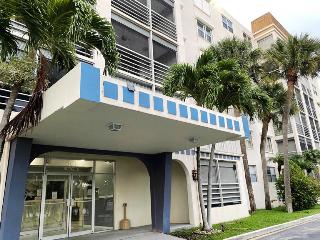|
Article
Courtesy of The Sun Sentinel
By
David Lyons
Published April 3, 2022
|
|
Hours after the catastrophic partial collapse of the
Champlain Towers South condominium in Surfside, stunned members of condo
communities along the South Florida coast predicted the disaster would
trigger a massive ripple effect of residents scrambling for ways to ensure
that tragedy would not strike their homes.
But the seriousness of the episode was not compelling
enough for a majority of lawmakers in Tallahassee to act.
|
The 2022 state
Legislature failed to agree on a package of safety reforms
that would have required inspections of older buildings,
mandated financial reserves for condo associations and
provided more public transparency for maintenance and
inspection reports.
Before Surfside, Broward and Miami-Dade counties were the
only counties statewide to require condo associations in
buildings 40 years or older to conduct inspections of their
buildings. And Florida law makes it easy for condo owners to
take a pass on funding reserves for future repairs on their
buildings.
After Surfside, Boca Raton installed one of the strongest
inspection laws in the state, requiring safety and
structural inspections for every building older than 30
years and taller than three stories or 50 feet. And a
Broward task force, among other things, urged the
Legislature last fall to require that condo buildings be
inspected more often, including a proviso that they a keep
special fund for repairs.
But state lawmakers fell short of
converting any recommendations into law.
“They were real numbskulls this time,” said Frank Simone,
general counsel and partner at KW Property Management and
Consultants in Sunrise, which advises hundreds of homeowner
associations and condominium boards around Florida. “It’s
amazing,” he said, that lawmakers could approve a slate of
bills covering a variety of social “wedge issues,” but not
critical safety reforms for high-rise residential buildings. |
|
Built in 1974, the buff-colored six-story tower at
501 East Dania Beach Blvd. is one of 60 properties in Dania Beach
currently not in compliance with a Broward County-mandated rule
requiring buildings 40 years or more to undergo a safety checklist.
|
For legal, management and real estate professionals in the condo industry,
the ramifications are clear: the private sector is creating its own agenda
for gathering more safety and inspection information from associations
before approving financing for condo purchases. Banks, insurance companies,
mortgage underwriters and investors are pushing rules that compel governing
associations to disclose more detailed technical information about the
structural integrity and histories of buildings, as well as what is being
done to correct problems.
“The private sector is already taking over,” Simone said.
“Insurance companies are demanding and wanting more and more information to
underwrite and insure,” he said. “Mortgage companies want more and more
information in connection with questions of structural soundness and whether
there are code violations or other violations at the condo property. They
have not waited on the Florida Legislature because they have fiduciary
obligations to their investors.”
Tougher loan underwriting measures
Earlier this year, buying a condo in an older building got a little tougher
for people seeking to finance their deals. Loans backed by Fannie Mae or
Freddie Mac, two private companies created by Congress, started to
scrutinize maintenance issues more closely before approving buildings for
loans generated by banks and other lenders.
Generally, they will not back loans for condo and co-op units if their
buildings have put off major repairs, industry experts say. Both companies
issued temporary requirements for condo and co-op projects to ensure that
buildings are structurally sound, and that associations governing them have
the money to pay for repairs. The result: associations have been confronted
with having to answer more detailed questionnaires about the status of
maintenance issues at their properties than they have in the past.
Many association advocates and real estate professionals say the tougher
rules are making it harder in some instances for owners to sell, placing
more pressure on Florida condo inventories already tightened by heavy
demand.
“We have urged them to suspend their regulations until they’ve had some time
to allow the [condo management] industry to set up an infrastructure to
answer these questions,” said Dawn Bauman, senior vice president of
government and public affairs for the Community Associations Institute of
Falls Church, Virginia. “We appreciate the intent. We want nothing more than
safe buildings.”
The institute estimates there may be as many as 20,000 condominium buildings
that would have been impacted by the proposed Florida legislation. If the
House and Senate had been able to reconcile their differences, the ensuing
law would have benefitted 9.6 million Floridians, the institute said.
Reserves the major sticking point
The chief difference between the House and Senate was that the former’s
version would have required a short time frame for associations to collect
reserve funds to pay for big ticket repair items, said attorney William Skar,
managing partner of the Tallahassee office of Carlton Fields, and chair of
the Florida Bar’s Post-Surfside Champlain Towers South Condominium Life
Safety Advisory Task Force.
|
